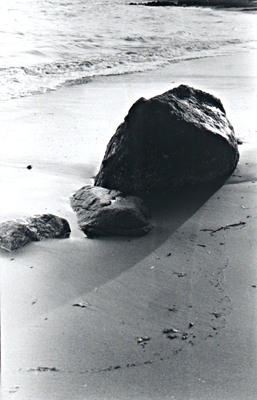All Nonfiction
- Bullying
- Books
- Academic
- Author Interviews
- Celebrity interviews
- College Articles
- College Essays
- Educator of the Year
- Heroes
- Interviews
- Memoir
- Personal Experience
- Sports
- Travel & Culture
All Opinions
- Bullying
- Current Events / Politics
- Discrimination
- Drugs / Alcohol / Smoking
- Entertainment / Celebrities
- Environment
- Love / Relationships
- Movies / Music / TV
- Pop Culture / Trends
- School / College
- Social Issues / Civics
- Spirituality / Religion
- Sports / Hobbies
All Hot Topics
- Bullying
- Community Service
- Environment
- Health
- Letters to the Editor
- Pride & Prejudice
- What Matters
- Back
Summer Guide
- Program Links
- Program Reviews
- Back
College Guide
- College Links
- College Reviews
- College Essays
- College Articles
- Back
Blood Chocolate
Imagine that you are a 15 year old boy from Mali. You come back from the communal well, carrying some water for your younger sister to wash in, and you see your mother talking to a strange, stocky man. Your mother looks at you and immediately looks away. The man, however, looks at you up and down, inspecting your muscles and checking you for signs of sickness.
Before you can ask your mother what is going on, the man has dragged you from the house and thrown you into a dirty white van. All you can think of is the pot of water that was carelessly spilt on the dirt floor and your mother turning away, not even bothering to clean it up, much less look at you.
When you are let out of the van, the man—the head farmer, you realize later—pushes you into a line of boys. You quickly learn to pick up the twenty pound sacks of cacao beans before the overseer whips you with the bicycle chains.
The cacao beans that you just harvested go to a warehouse, a factory, a refinery, a packaging unit, and finally into a fifteen year old boy’s hands. He takes a bite of his Milky Way, savoring the sweetness. Across the ocean, the only thing you can taste is the choking metallic flavor of your own blood.
Cote D’Ivoire produces half of the world’s supply of cacao beans. This is the essence of chocolate, the central ingredient of Oreos, Chips Ahoy, Snickers, Hershey’s, and all those other rich, delicious, chocolatey delights. Stop drooling for a minute and consider this.
In Cote D’Ivoire, 200,000 young boys aged 11-16 are enslaved on cacao farms scattered around the country. Hershey’s, Nestle, and Mars, the giants of the chocolate industry, then buy chocolate from commodities exchanges, which is where that Ivorian cacao beans would be shipped. Your favorite treats, be they Pepperidge Farm Milanos, Chips Ahoy cookies, Oreos, Twix bars, or Tootsie Pops, are then made from these bloodied, tainted beans.
There are alternatives. Fair Trade chocolate brands are ones that guarantee that their ingredients are all grown and combined by paid laborers, not children, and that their workers live in humane conditions. Starbucks has come out with a few Fair Trade chocolate bars; Cadbury’s Dairy Milk Chocolate Bar is Fair Trade, and there are plenty of other, more obscure brands that are certified Fair Trade. How can you tell? Look for a Fair Trade seal on the wrapper or packaging. Start trying to be selective about what chocolate products you eat. Yes, it’ll limit your chocolate consumption, and you might never get to eat a chocolate Costco muffin again. But if I, the ultimate chocoholic, can survive this for five years, you can try for at least one month. I promise, it’s not too difficult when you find the right brand.
And I don’t expect everyone to drop their Butterfingers and feel awful. I’d just like to ask you, the reader, to care enough to say something. Tell your parents or friends. Mail or e-mail Hershey’s, Nestle, Mars, Ghirardelli, Godiva—any of them—and ask them, plead them, convince them, and sweet-talk them (no pun intended) into getting their brand Fair Trade certified. Help the children get their lives back, throw off their chains of bondage, and even get the bitter taste of slavery out of your chocolate bar.
If you can’t be bothered to type up a short e-mail, just remember that one little boy in Cote D’Ivoire, with sad eyes and a scarred back, will never taste the chocolate he makes for you. There is a good reason some chocolates are labeled ‘bittersweet.’

Similar Articles
JOIN THE DISCUSSION
This article has 1 comment.

0 articles 0 photos 4 comments
Favorite Quote:
Treat people the way you would want to be treated